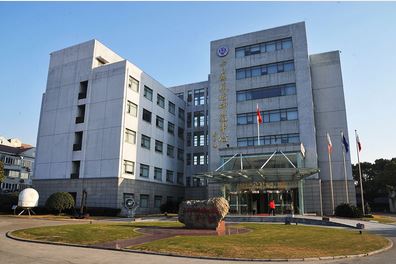On the 26-28 May 2015 the 3On the 26-28 May 2015 the 3rd China-Nordic Arctic Cooperation Symposium will take place in Shanghai and the conference theme is "Arctic Synergies: Polices and Best Practice". All presentations will focus on Arctic-related issues, within one of the session topics:
- Session I The Evolution of Arctic Governance: Geopolitical, Legal, and Socio-Economic Issues
- Session II The Impact of Scientific Developments on Arctic Strategies
- Session III The Framing and Implementation of Chinese and Nordic Arctic Policies
- Session IV Trans-Arctic Synergies in Arctic Economic Development
Detailed description of the sessions:
Session 1, The Evolution of Arctic Governance: Geopolitical, Legal, and Socio-Economic Issues
The Arctic has, in recent years, assumed global importance because of the impact of climate change, the region's natural resources, and the economic potential offered by the opening of Arctic sea routes. What are the main political, legal and socio-economic issues in the evolution of Arctic governance? Is the current governance framework based on the United Nations Law of the Sea Convention (UNCLOS) sufficient to meet the challenges and opportunities in the region? To which extend would the tension between Russia and U.S.-EU in the aftermath of Ukrainian crisis affect Arctic governance and Arctic cooperation? How does the Arctic fit into broader geopolitical developments taking place in the world? What is the role of the Arctic Council? What is the significance of the decision to accept five Asian countries (China, India, Singapore, South Korea and Japan) as observers to the Arctic Council? How does increased interest in the Arctic contribute to sustainable development and human security at local, national and regional levels in the Arctic region? How do these changes affect the participation of indigenous communities in Arctic governance and the longstanding culture for open dialogue and informal deliberation within the Arctic Council?
Session 2, The Impact of Scientific Developments on Arctic Strategies
Scientific research and cooperation has been at the very center of Arctic policy-making since the Arctic Environmental Protection Strategy was launched in 1991, which subsequently led to the establishment of the Arctic Council in 1996. Has science remained as a key element in Arctic policies with the promotion and popularization of Arctic affairs? How do outside stakeholders, such as China, see the role of science and research in Arctic policy-making? What are the implications of Arctic Science Summit Week 2015 and Third International Conference on the Arctic Research Planning (ICARP III) on Arctic Science and governance?
Session 3, The Framing and Implementation of Chinese and Nordic Arctic Policies
All the Nordic States have, in the last few years, published official Arctic strategies. While China has not yet taken this step, it is possible that a policy statement or a White Paper will be forthcoming. What are the main concerns of the Nordic countries, when it comes to the Arctic? What do the Nordic Arctic policies have in common and how do they differ from each other? What is the role for Arctic policy papers from regional or sub regional organizations, such as the Nordic Council, the West Nordic Council and the Barents Council? How do European supranational and intergovernmental organizations, such has the European Union and European Free Trade Association, fit into Arctic policy-making? What Arctic-related policy cooperation is in place between China and the Nordic Countries? How can the China-Nordic Arctic cooperation framework be developed further through bilateral and multilateral means?
Session 4, Trans-Arctic Synergies in Arctic Economic Development
Following the Arctic Council's 2013 Ministerial Meeting in Kiruna over half of the G20 countries are now represented at the Arctic table. The Arctic region is playing a more important role on the world stage as part of globalisation, economic development, energy utilisation, environmental protection and international security. The World Economic Forum, in its 2014 report Demystifying the Arctic, estimated the Arctic region's current annual economy at roughly $230 billion; this figure, however, could rise in the coming years, with the Arctic believed to hold about 20% of Earth's remaining recoverable natural resources (including substantial reserves of oil and gas, minerals, renewable energy sources, fresh water and seafood). Questions remain where investors and labor force for Arctic projects will come from; in addition, international cooperation and best practices are likely to remain as critical success factors for many of the Arctic's potential economic opportunities. What role will outside stakeholders, including Asian and European economies, play in the economic development of the Arctic? In which industries are the interests of local Arctic residents and outside stakeholders most aligned? Will it be in developing infrastructure, creating new extensions of international transportation networks (in shipping and aviation), developing trade relations and/or investing in natural resource development?
More info at: CNARC

